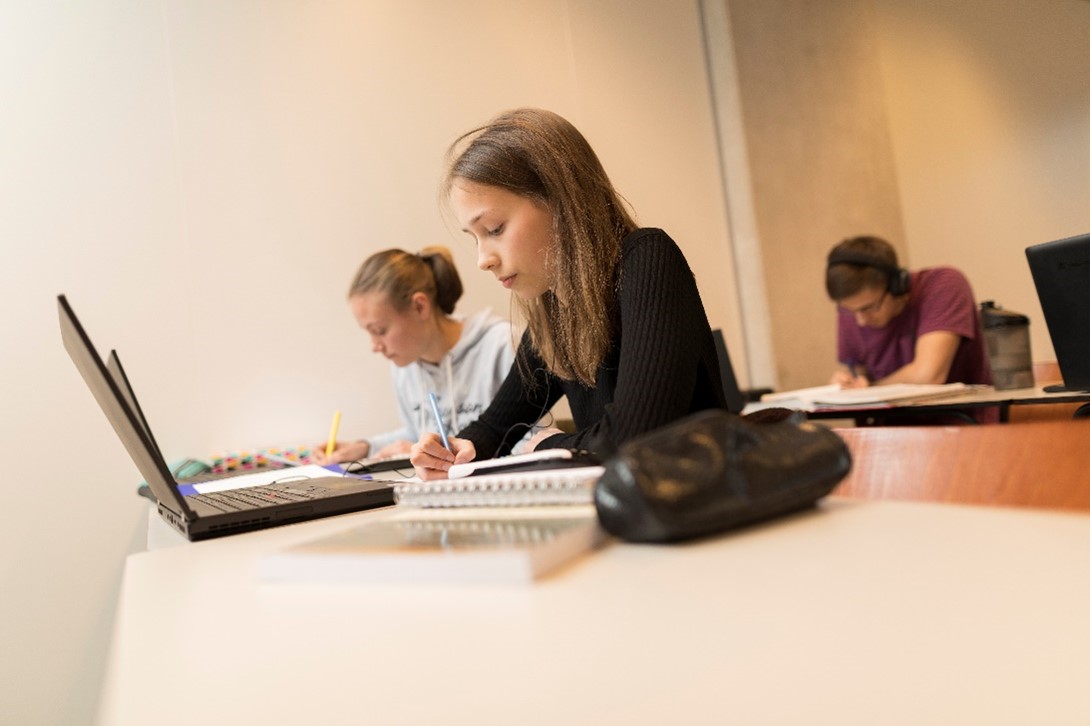Module 1 (Mechanics)

The Mechanics module provides a first encounter with the world of engineering. Students learn to capture salient details of classical mechanics/dynamic systems around them in simple models.
The content of the module is based on mechanics (movement, Newton’s laws, statics) and first and second order systems.
Subjects Module 1
The course begins with differential equations (DEs), which are essential to mathematical modelling. You will look at first and second order DEs and how to solve them. Furthermore the basics of complex numbers and how they are involved with DEs are discussed. The argand plane depiction of complex numbers is proceeded on in vector analysis. Vectors are of vital importance in any scientific study involving physics or engineering. The course is completed with an overview on limits, continuity and differentiation. Throughout the course repeated reference is made to the mathematical language such as sets, logic and proving. This mathematical language is used in contexts related to calculus.
The engineering portion of the module encompasses classical dynamics and statics. The concept of Free Body Diagrams will be introduced in order to analyse both static and dynamical systems. Dynamics is treated starting from velocity and acceleration, moving towards Newton’s laws in both the translational and rotational domains. Mechanical second order systems (mass, spring, damper) are included.
During one part of this course you will conduct experiments in a lab. In the experiments issues are introduced such as formulating a hypothesis, translating a problem into measurable quantities, carefully planning an experiment, etc. In conducting the experiments, a selection of technical methods and experimental skills are learned. In many of the experiments the computer is used for data acquisition, processing and/or analysis. By structured documentation of the work in a lab journal, a systematic approach towards experimental research is developed. The experiments cover topics such as electrical filters and mechanical systems.
During the other part you will learn how to apply error analysis techniques to data and you will learn the basics of programming in Matlab.
The project integrates mathematics and mechanics and forms the playground for achieving a deeper understanding of the subjects as well as developing the academic skills.
In the project students will choose a research question related to a relevant dynamical system from a list of in total 15 descriptions. They all are related to the Mechanics and Calculus 1 parts of the module, but go much deeper. The project starts with a problem analysis, contains a (mathematical) modelling step and the final answer obtained by solving this mathematical model must also be validated by an experiment.
Skills Workshops
Reviews Dutch secondary school topics (mainly algebra). Support for Calculus 1 and Mechanics.
Introduction to Mathematica for solving mathematical problems. Support for Calculus 1 and Mechanics.
On finding, assessing, using and referencing scientific information sources. Support for Laboratory Practice and Project.
Support for Project.
Introduction to the text editor environment. Support for Project and Mechanics.
Solving Differential Equations with Simulink in Matlab. Support for Project.
Support for Laboratory Practice and Project.
Support for Project.

Self study
An important aspect of the bachelor Advanced Technology is self-dependence
